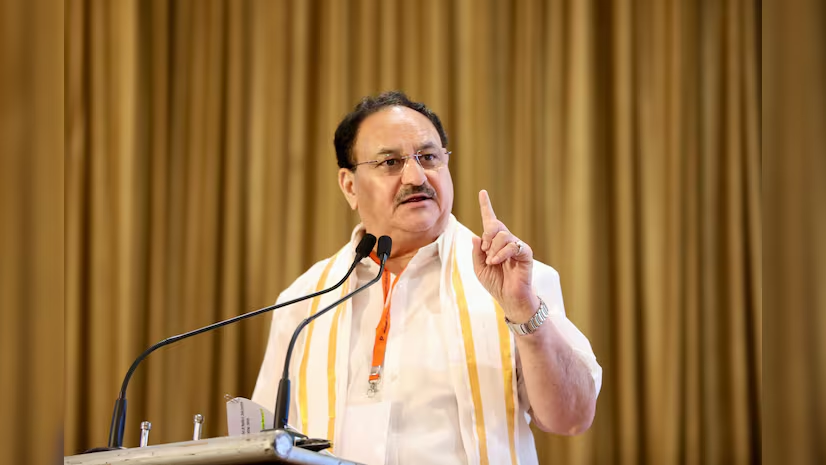Saiva Siddhanta – A Philosophy Rooted in the Soul, Not Religion
Saiva Siddhanta, one of the oldest philosophical systems rooted in Tamil culture, is not merely a religious doctrine but a spiritual guide that addresses the soul’s journey towards liberation. It transcends ritualistic practices and sectarian boundaries, emphasizing self-realization, devotion (bhakti), and Central with Lord Shiva. This profound idea was highlighted recently during the 6th International Saiva Siddhanta Conference held at SRM Institute in Kattankulathur, Chengalpattu district.
Central Minister and BJP National President J.P. Nadda, who inaugurated the event, began his speech with “Vazhga Tamil, Valarga Tamil Nadu” (Long live Tamil, May Tamil Nadu prosper), capturing the spirit of Tamil culture. He emphasized that Saiva Siddhanta is soul-centric rather than religion-centric. He also praised the ancient legacy of Dharmapuram Adheenam and the spiritual richness of Tamil Nadu through its temples, saints, and philosophical literature.
Tamil Nadu Governor R.N. Ravi, in his address, said that Sanatana Dharma is the spiritual foundation on which Bharat (India) thrives. He acknowledged that Saiva Siddhanta has given the world sacred Tamil texts like the Thevaram and Thiruvasagam. He urged that these devotional hymns be included in higher education curricula, highlighting their philosophical and literary significance.
Further reinforcing the idea, BJP Tamil Nadu President Nainar Nagendran stated that spirituality is not confined to religion—it is rooted in the mind and the soul. According to him, Sanatana Dharma is not about mere rituals; it is a way of life that nurtures morality, discipline, and universal values.
These speeches emphasized that Saiva Siddhanta, though often identified with Shaivism, transcends sectarian identities. It is a philosophical system that elaborates on the nature of the soul (jeeva), God (Siva), and the path (marga) that connects them. Its ultimate goal is liberation (moksha) through knowledge (jnana), devotion (bhakti), and disciplined practice.
The conference, attended by prominent figures like BJP leader H. Raja and former Governor Dr. Tamilisai Soundararajan, served as a reminder that Saiva Siddhanta is still relevant in today’s spiritual discourse. Its principles are timeless, promoting introspection, ethical living, and spiritual awakening.
Saiva Siddhanta does not advocate religious superiority or conversion. Instead, it inspires individuals to seek truth within themselves, seeing Shiva not as an external deity but as the supreme consciousness that resides within all beings. It teaches that liberation is not reserved for a chosen few, but attainable by all who engage sincerely in spiritual discipline and moral living.
Thus, Saiva Siddhanta is not merely a religious system—it is a philosophy of the soul. Its emphasis on inner purity, devotion, and liberation offers a spiritual path for humanity beyond caste, creed, or religion. The fact that political and spiritual leaders are bringing this message into mainstream awareness is a hopeful sign for its continued relevance and expansion.








